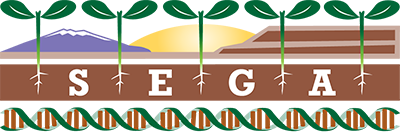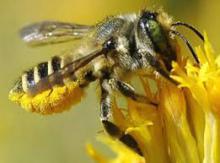You are here
How will climate change affect high elevation bees?
Megachilidae bees are among the world’s most efficient pollinators and sold commercially for that purpose. Commonly known as ‘mason bees’ or ‘leafcutter bees’ are usually solitary and rather than carrying pollen on their hind legs like most other bees, they carry their pollen in a pocket or ‘scopa’ on the underside of their abdomens. Of the many native species in the mountains of the US southwest – some are very specific to high elevation habitats where they rely on dead wood to provide them with nest sites. This project is examining what will happen as climate change brings warmer conditions to higher and higher elevations, by studying 21 Megachilidae forest and woodland bee species at three SEGA forest sites as well as pinyon juniper, ponderosa, mixed conifer and spruce fir sites on the San Francisco peaks. Experimental manipulations will test the effect of temperature on: 1) rapid adaptation of immature bee species when they’re moved out of their current range, 2) fluctuation of temperature in bee blocks during their larval stages, and 3) whether temperature or nesting substrate is the dominate limitation for these species.
Theme by Danetsoft and Danang Probo Sayekti inspired by Maksimer

